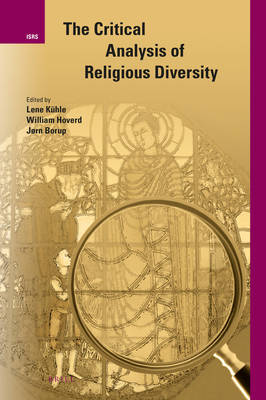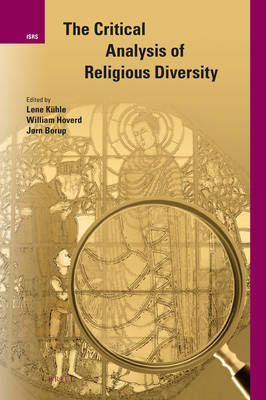
- Afhalen na 1 uur in een winkel met voorraad
- Gratis thuislevering in België vanaf € 30
- Ruim aanbod met 7 miljoen producten
- Afhalen na 1 uur in een winkel met voorraad
- Gratis thuislevering in België vanaf € 30
- Ruim aanbod met 7 miljoen producten
Zoeken
Omschrijving
Drawing on international and thematic case studies, The Critical Analysis of Religious Diversity asks its readers to pay attention to the assumptions and processes by which scholars, religious practitioners and states construct religious diversity. The study has three foci: theoretical and methodological issues; religious diversity in non-Western contexts; and religious diversity in social contexts. Together, these trans-contextual studies are utilised to develop a critical analysis exploring how agency, power and language construct understandings of religious diversity. As a result, the book argues that reflexive scholarship needs to consider that the dynamics of diversification and homogenisation are fundamental to understanding social and religious life, that religious diversity is a Western concept, and that definitions of 'religious diversity' are often entangled by and within dynamic empirical realities.
Contributors are: Martin Baumann, Peter Beyer, Jørn Borup, Paul Bramadat, Marian Burchardt, Henrik Reintoft Christensen, Andrew Dawson, Mar Griera, Anna Halafoff, William Hoverd, Lene Kühle, Mar Marcos, Stefania Travagnin, and Andreas Tunger-Zanetti.
Contributors are: Martin Baumann, Peter Beyer, Jørn Borup, Paul Bramadat, Marian Burchardt, Henrik Reintoft Christensen, Andrew Dawson, Mar Griera, Anna Halafoff, William Hoverd, Lene Kühle, Mar Marcos, Stefania Travagnin, and Andreas Tunger-Zanetti.
Specificaties
Betrokkenen
- Auteur(s):
- Uitgeverij:
Inhoud
- Aantal bladzijden:
- 328
- Taal:
- Engels
- Reeks:
- Reeksnummer:
- nr. 32
Eigenschappen
- Productcode (EAN):
- 9789004367098
- Verschijningsdatum:
- 5/07/2018
- Uitvoering:
- Hardcover
- Formaat:
- Genaaid
- Afmetingen:
- 160 mm x 236 mm
- Gewicht:
- 566 g

Alleen bij Standaard Boekhandel
+ 528 punten op je klantenkaart van Standaard Boekhandel
Beoordelingen
We publiceren alleen reviews die voldoen aan de voorwaarden voor reviews. Bekijk onze voorwaarden voor reviews.








